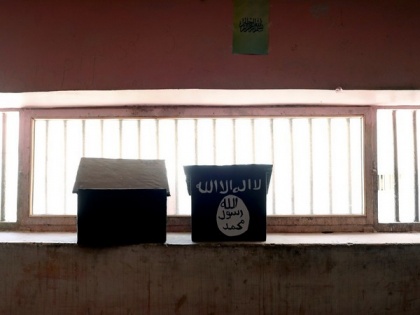Pact between US, anti-Islamic State jihadi groups short-sighted move, says expert
By ANI | Published: September 23, 2021 12:56 PM2021-09-23T12:56:31+5:302021-09-23T13:05:13+5:30
The unspoken pact between Washington and anti-Islamic State (ISIS) jihadi groups is a short-sighted move that will reward terrorists, according to a foreign policy analyst.

Pact between US, anti-Islamic State jihadi groups short-sighted move, says expert
The unspoken pact between Washington and anti-Islamic State (ISIS) jihadi groups is a short-sighted move that will reward terrorists, according to a foreign policy analyst.
Lorenzo Vidino, writing in Foreign Policy said that both US and jihadis will not dare to express it publicly, as it would cause both internal and external outrage. And both are unsure about what it exactly entails and are distrustful of the other side's true intentions.
The US withdrawal from Afghanistan has laid bare a dynamic that has quietly developed over the last six to seven years: an uneasy but de facto mutual understanding between Washington and a part of the global jihadi movement.
The roots of the unspoken pact can be traced to the second half of 2014 when Washington assembled an international coalition to fight the Islamic State. To jihadi strategists--and most people in the region--the rationale behind US intervention was clear: The Islamic State faced military attacks not when it conquered territory the size of France between Syria and Iraq and ruled it with medieval barbarity but only when it began beheading Westerners in Hollywood-style video productions and attracting thousands of Western foreign fighters who, from the safety of the caliphate, issued threats against their home countries, reported Foreign Policy.
The lesson was clear: Lay low, don't behead Westerners, don't plan attacks in the West, and Washington lets you be, says Vidino.
Still, the Islamic State remains hell-bent on attacking the United States and is, conversely, a primary target of it. It is a deal whose manifold and long-term implications Washington seems to have overlooked.
The pact gave Jabhat al-Nusra, Al Qaeda's affiliate in Syria and the Islamic State's archenemy time to consolidate its hold on territory.
As a result of having adopted this approach, al-Nusra's successor, Hayat Tahrir al-Sham (HTS), now de facto controls the Idlib area in northwest Syria. Tellingly, HTS leader Abu Mohammad al-Jolani has publicly revealed that, at the time, Al Qaeda leader Ayman al-Zawahiri had sent him "clear orders not to use Syria as a launching pad to attack the U.S. or Europe in order to not sabotage the true mission against the regime (of Syrian President Bashar al-Assad)," reported Foreign Policy.
The Syrian lesson has recently been confirmed in Afghanistan. The pro-Al Qaeda galaxy has interpreted recent developments in Kabul as recognition of the United States' undeclared but increasingly clear policy of tolerating and even cooperating with "moderate" jihadi groups that, although hostile and openly violating human rights, do not attack the West or, further lowering the bar, just happens not to be the Islamic State, says Vidino.
Tellingly, while HTS supporters celebrated the Taliban takeover by distributing sweets to the local population in Idlib, Syria, a commentator close to the group referred to it as "the victory of those who have the patience that must inspire us."
Over the last 10 years, the vast majority of jihadi-motivated attacks in Europe and North America have been perpetrated by unaffiliated jihad enthusiasts or supporters of the Islamic State; those carried out by individuals linked to Al Qaeda can be counted on one hand.
And since attacks in the West are one way in which jihadi groups boost their standing among potential supporters, it can be argued that an Al Qaeda-Western deal that boosts the former's ability to govern spaces might lead the Islamic State to intensify its attacks, the group's best weapon to counter its rival's successes via propaganda, says Vidino.
Moreover, the many US partners in the region--those Al Qaeda would call the "near enemy"--are increasingly frustrated by the United States' withdrawal from the Middle East and what they perceive as Washington's pattern of not coming to its allies' defense.
As per Vidino, the fatal flaw is in the deal's underlying assumption. Dividing the jihadi movement into "moderates" (HTS, the Taliban, and even Al Qaeda) Washington can do business with and extremists (the Islamic State) that are the only real enemy is a misguided approach.
( With inputs from ANI )
Disclaimer: This post has been auto-published from an agency feed without any modifications to the text and has not been reviewed by an editor
Open in app